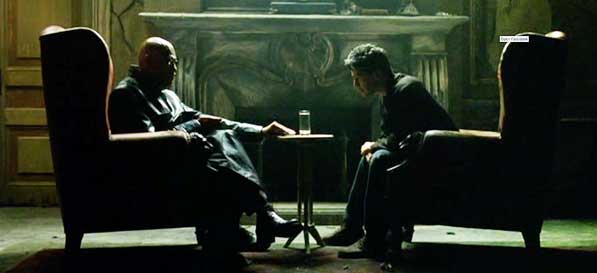Freedom: Not What We Might Think It Is
Seventeenth Sunday of Ordinary Time, Year A

Readings:
1 Kgs. 3:5, 7-12; Ps. 119; Rom. 8:28-30; Mt. 13:44-46
God has a plan for your life. As I was meditating on today’s Scriptures, I began focusing on a word St. Paul uses in his letter to the Romans. He says, “For those [God] foreknew he also predestined to be conformed to the image of his Son….” The topic of predestination is one I have discussed frequently with my uncle Rich, usually over dinner at places like the Texas Roadhouse. Yes, somewhere in the midst of chupacabra’s and Cotten-Eye Joe blasting on the loudspeakers, we would be sitting there discussing the foreknowledge of God and what it meant to be predestined by him to be a follower of Christ. And while much has been said about the notion of predestination, it remains a topic of discussion today.

God has a plan for your life, but a lot of the time, that plan is unknown. Predestination can be challenging because it caught up with fate. If you have ever seen the movie the Matrix, there is a scene when Morpheus asks Neo if he believes in fate. Neo says, “No….Because I don’t like the idea that I’m not in control of my own life.” So, the notion of predestination can lead to the scary conclusion that God is controlling us from above. But, if that were true, then why, for instance, does God give King Solomon the choice to ask for something? If Solomon were being controlled by God, there would have been no reason to ask. Yet, God respects our human freedom.
But, the argument remains: If God is all-knowing, then he already knew what Solomon was going to ask for, as well as whether or not he was going to grant his request. Following this argument to its logical conclusion it would seem that God only appears to respect human freedom, therefore, we are not really free. Or are we? What if God’s foreknowledge and our fate are actually tied to freedom? What if the idea of predestination is actually a fuller experience of freedom? St. Augustine once said that we have as many masters as we do vices. In other words, our human existance is finite and limited. We are all slaves to sin. And slavery, by definition, is the absence of freedom. Yet, God has predestined us to be conformed to the image of his Son.
Pauline scholar N.T. Wright has written extensively about the theology of St. Paul. He says that the passage we heard from St. Paul’s letter to the Romans is the pinnacle of the gospel St. Paul preached. It is the core message, namely, that God desires to call us to himself, to transform our hearts through the preaching of the Gospel, to fashion us after the image of his Son, and to give us a share in the glorification already afforded by Christ. In this sense, we are all predestined by God to share in the glory of his Son. The way N.T. Wright puts it is this: “God takes the initiative, based on his foreknowledge; the preached word, through which the Spirit is at work, is the effective agent; belief in the gospel, that is, believing submission to Jesus as the risen Lord, is the direct result” (Wright, 285). This believing submission is the key to our true freedom in Christ. It is in the giving over of self to God that we are transformed into the image and likeness of the Son of God, a sharing in his glory. Remember the words of Jesus from the Cross: “Father, into your hands I commend my spirit.” When we submit to God, when we conform our hearts after the heart of God, then we experience the fullness of God’s freedom, the freedom that comes to us only through Christ.
To appreciate the awesome gift of freedom in Christ, Jesus gives us a couple analogies of the kingdom of heaven. Two analogies, but the same lesson. He says the kingdom of heaven is like a treasure that someone sells all they have to preserve; or a merchant searching for pearls, who sells all he has to buy a single fine pearl. In other words, nothing on earth can compare with the value of the kingdom of heaven. The lesson for us, then, is letting go of our earthly possessions and worldly ambitions so we can more fully embrace freedom as children of God. In short, the kingdom of heaven is freedom, and the price we pay for it is letting go of all that prevents us from letting go of this world. Jesus says, “For whoever wishes to save his life will lose it, but whoever loses his life for my sake will find it” (Matt. 16:25). Where is our focus?
The things of this world are a distraction to the life of freedom we have in Christ. The pearl of great price is freedom from being weighed down by sin; freedom from living a lie; freedom from attachments to this world. The pearl of great price is also freedom to: Freedom to rise above the slavery of sin; freedom to seek wisdom and understanding; freedom to be conformed to the image of the Son of God; freedom to be glorified by God as we turn to him in faith.
And so, in thanksgiving for being called to share in the freedom offered us by Christ, let us open our hearts and minds to the Father as we seek to be conformed to the image of his Son, and share in his own glory, each of us imaging the image of God, like pearls of great price. God has a plan for your life. What will you ask of God?
Given during the COVID-19 pandemic.
Pauline Perspectives: Essays on Paul, 1978-2013, N.T. Wright, Fortress Press, 2013





Share this post
Twitter
Facebook
Pinterest
Email